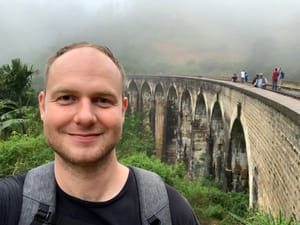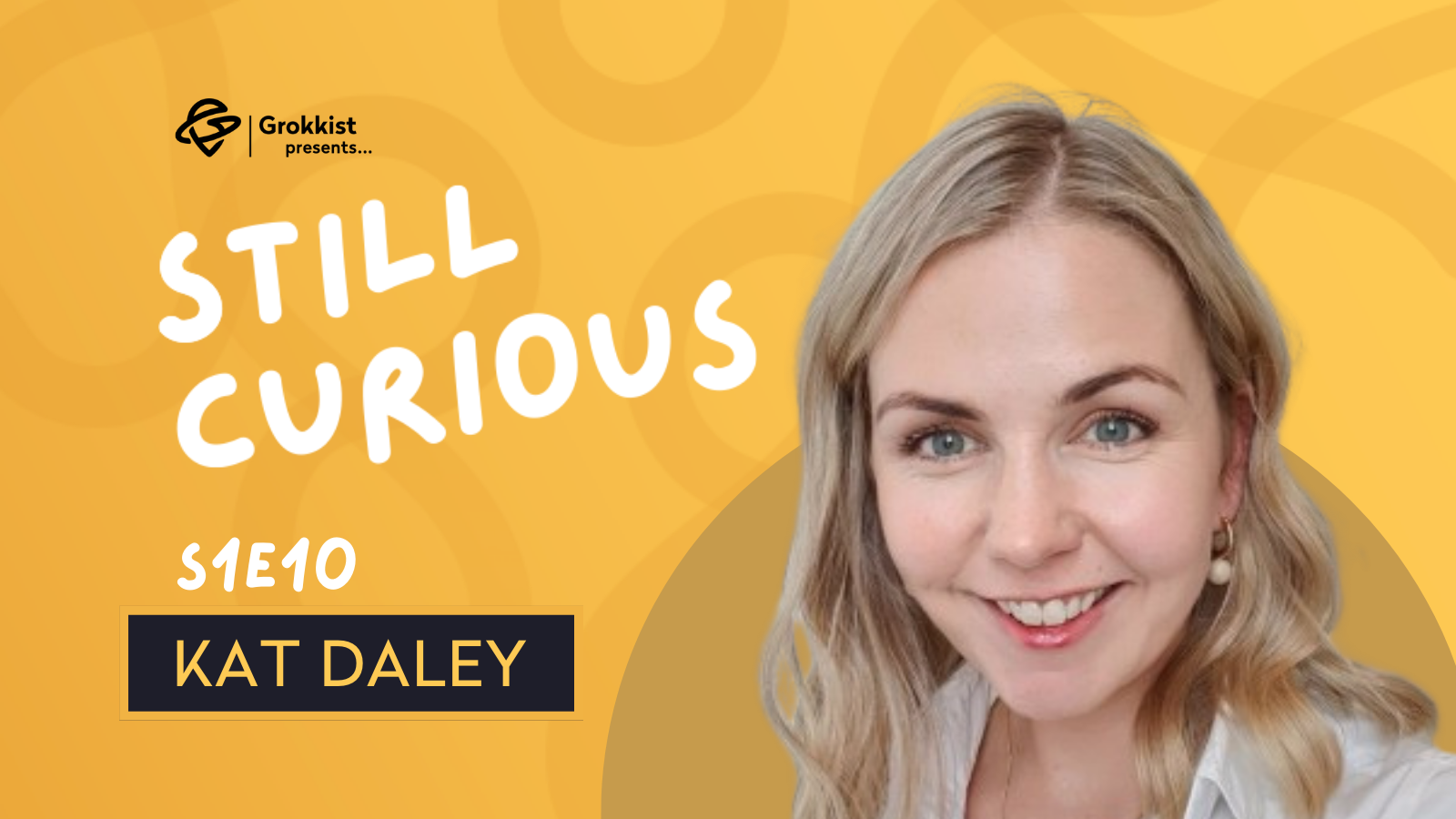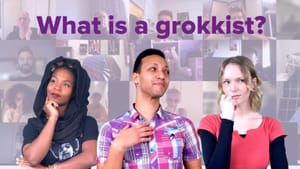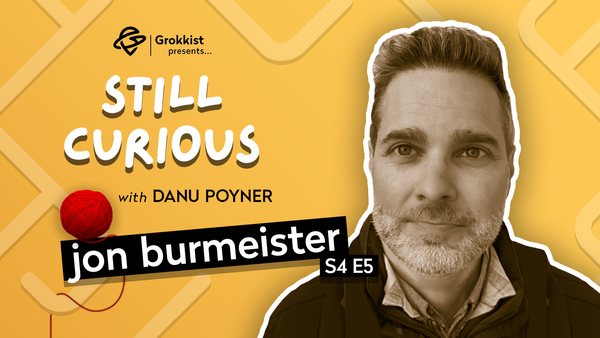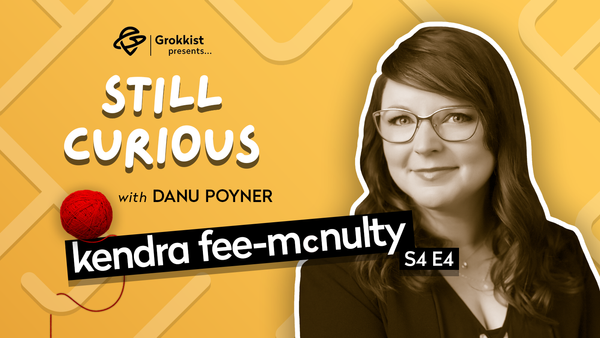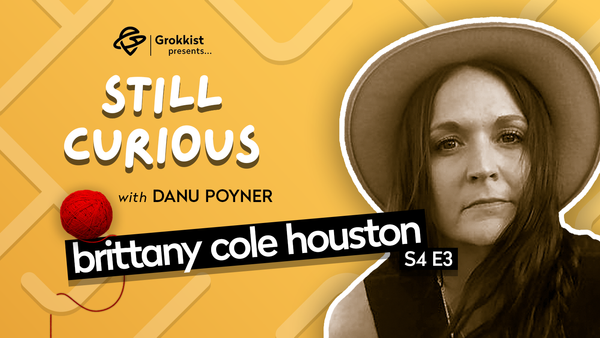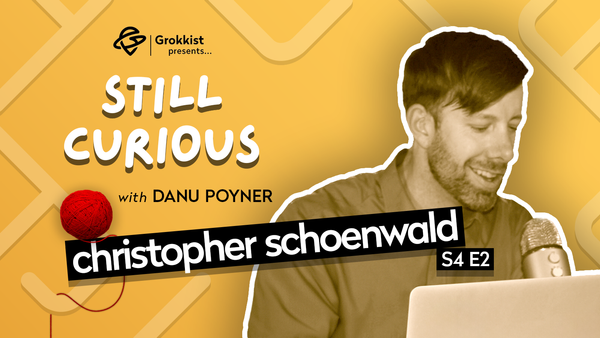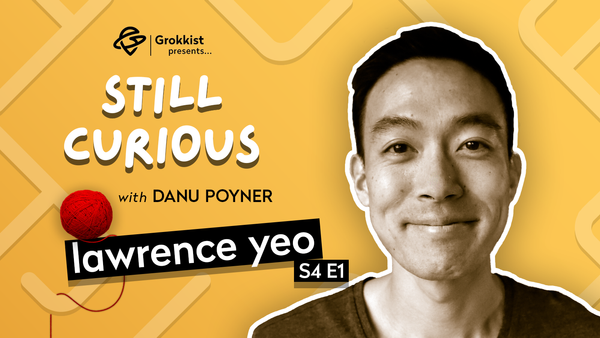Listen Now
About the Episode
Key topics
- How growing up in poverty taught Kat from an early age about the need to tackle injustice and stand up for others (and why that got her into trouble)
- How Kat became an academic by accident and how a typo in her university enrolment changed the course of her career
- What it means to have a sociological understanding of young people - making sense of young people as a collective group, how policy is made in relation to young people and how young people are included or excluded in that process
Detours and tangents
- Why curiosity is a privilege that comes with having time and economic security
- What's involved in running the largest youth work degree program in Australia
Recorded 5 November 2021
Episode Digest
Kat's squiggly career
- Kat was raised in a very socioeconomically deprived area by a single mom who struggled. From very young, she remembers being bothered by a sense of injustice.
- Kat went to a school where teachers sleeping with or assaulting students was not uncommon, although she had no way of knowing at the time that this was not normal. Many of the boys she went to school with are now either dead or in jail. “When you know these people from kindie, you know that they weren't all evil.” Kat had what she now understands as ‘protective factors’ that enabled her to have a different pathway to most.
- At school, Kat got suspended a lot for ‘disrupting the class’ when she would stick up for others and intervene when they were being bullied. In one such situation she swore at a teacher for not doing their job.
- As a teenager, a girl who had been to Kat’s dance school was murdered and this became a front page story in Melbourne. Kat contrasted this level of community and media attention with the deaths of boys she knew from school who had died at the hands of injustice and whose name wouldn't even come up in a Google search. She realised that poor young men were apparently not people that the broader community could connect with or empathise with and therefore the community would assume “they must've deserved that fate”.
- Kat became an academic “by accident.” She had planned to be a dancer and then changed her mind about that. She didn't really know what she wanted to do. She started a science degree which she didn't really have any interest in and didn't stick around for long and then just went and worked for a while. But she knew that if she wanted to have a career as a woman, then she needed to go to university for any significant career progression and economic security.
- Kat’s first preference was a science degree with a major in psychology. She was surprised to get an offer instead for a social science degree with a major in psychology. It turns out there was one digit difference in the course code number which she had mistyped. “This was very unfortunate because I actually hated humanities and the social sciences.” But the social science degree was based in the city centre at least, which was more convenient, and the psychology major was exactly the same in both. So Kat thought “I'll just start this and then move over.”
- She didn't enjoy the social science part of the degree until the third year when she really started to engage with it a lot more. By this point she had lost interest in psychology as a study and didn't want to be a psychologist anymore. “It was the individualist approach, whereas what I always had a passion for was working with disadvantaged young people as a group.”
- Kat decided to go into teaching in community schools, which are schools for young people who are disengaging or disengaged from mainstream schools – a way to keep them connected in an alternative education setting. She was committed to being a good teacher because “there were lots of average teachers.” Her plan was to do an honors year, do a masters of teaching and then go and do teaching.
- While Kat was finishing her degree, she was working as a youth worker in a drug and alcohol service. “What I always found really problematic was that all of the research on best practice for working with young people with drug issues was not applicable to the young people I was working with.” This was because most research was undertaken by psychologists through psych services that had research centers attached to them, so the overwhelming majority of evidence was based on young people who were accessing psych services, e.g. a 12 week CBT intervention. It did not reflect the realities of people Kat was working with, who were often homeless young people who had been in and out of child protection and were in contact with the justice system. “The problem is services get funded by adopting evidence-based practice but it didn't work with our clients because there wasn't evidence and I certainly didn’t have a research team.”
- It occurred to Kat that this kind of research was something she could do. “That's part of why I did an honours year. I was interested in the research and I thought it would have value for when I went on to be a high school teacher.”
- At the end of her honours year, Kat was very firmly encouraged to apply for a PhD, which wasn't something she had much interest in at the time. But she got accepted into the PhD with a scholarship that couldn’t be deferred. There had recently been a crisis in my personal life, so Kat decided she could research this topic she was interested in while taking a break from the emotional toll of being a caseworker during a difficult time personally. “I enjoyed the PhD and I always still planned on either doing, teaching or going back to being a youth worker. And the day after I handed in my PhD, I started a job as an academic and I haven't left.”
- Kat has since become the program manager for the Bachelor of Youth Work and Youth Studies at RMIT University, which is the largest youth work program in Australia. “We have a very strong policy bent in our degree in terms of looking at how policy is made in relation to young people, how it applies to young people and how young people are included or excluded in that policymaking process. We feel that's really important for the future workforce to understand because as a worker you are working with usually one client, one young person, and it's very easy to fall trap into this idea that it's an individual issue. And you do need to work with them as an individual, but the pattern of experiences they are having might be part of a broader social pattern. As workers, we need to be aware of that, not just to be better workers, but to be better advocates for young people.”
The Red Thread
- Kat has lived experience of poverty and cannot tolerate the injustices she has seen around her that stem from a lack of understanding, empathy and concern for people who experience chronic disadvantage. “When you grow up in poverty, you understand things differently. You understand why people who experience extreme poverty forgive each other for stealing each other's things. That’s because they both understand desperation and they don't see it as ‘you chose to steal from me and that's disrespectful and I'm going to cut you off for life, it's like, ‘I know what it's like to have been that desperate.’”
- She steps in to address injustice at both the individual level and the system level. “If you are siloed into this idea that everybody's problems are their own individual problems, it places responsibility at the feet of the individual, rather than the social or political dimensions that might come into it.”
- Kat understands how policy decisions get made and services get funded and uses her academic position to create change by producing evidence that informs those decisions. “The aim of my research was never about me becoming a famous researcher or becoming a professor. It was about getting these stories out for people. That was what drove me. It wasn't about me wanting to become an academic. It was about me feeling like I had a space and an opportunity to be able to do something, albeit small. I couldn't change the world, but at least I wasn't ignoring it.”
Decisive moments
- After getting suspended from school for ‘disrupting the class’ to intervene in bullying, Kat went home and told her mum what had happened. “She didn't for a second think that I was lying. And she was like, ‘you did the right thing, you've got to stand up for other people. Don't worry about getting suspended from school.’ So a lot of it I must have learned from her. That was the person that she was.”
- While working at the youth drug and alcohol service, there was major funding reform happening to the drug and alcohol sector in Victoria. One of the things under discussion was whether or not there even needed to be a youth-specific drug and alcohol service – why couldn't young people just go to the same services as adults? There wasn’t a strong evidence base – literature is very sparse in Australia and even internationally on youth work practice. “It was my first really strong realization that without evidence, a lot of things are very, very vulnerable and could really shift the landscape of the services that young people have access to very, very quickly. So that was probably what sparked, you know, my drive to go into this space.”
Synthesising for strength
- Kat’s lived experience of chronic disadvantage animates her with an ethical and sociological imagination for the issues affecting young people.
- As program manager for the largest youth work degree program in Australia, Kat takes a three-pronged approach that combines education, policy and research to make a difference to the sector.
- On the heaviness of the work she does: “It can be a very dark place if that's all you're doing, but in terms of filling my cup, I’ve got a toddler. My day stops once childcare's over and I'm drawn into the creative, imaginative world of a small person, and that's both refreshing and inspiring. I'm not drawn into the heavy cloud of it for the most part. I really love what I do. And I think just naturally having other things in your life prevents you from being consumed by it.”
How Kat likes to learn
- “I really think that I learned a lot from living in poverty, and not just in an environment where you're exposed to violence or kids being in and out of child protection or friends with family violence issues at home. I'm not suggesting that this is the way that everybody should go and learn, but it definitely had a hugely significant impact on who I became.”
- “The biggest thing I wish anybody could have in learning anything is just the ability to empathize, to truly understand that there's things you don't understand about who people are and what makes their decisions and what drives them. And that sometimes you can imagine being in their shoes, but sometimes you can't. And just to acknowledge that you can't understand it and respect that whatever decisions they make or are forced to make might not be an indictment on them being mad or bad or sad or whatever. If you go about your life in the hope and trust that most people are good and maybe sometimes it's harder to see that, but it might just be that you're coming from different paths, I think it opens you up as a learner, but also just as a human in terms of your interactions with others.”
Reflections on practice
- On situated choice: “All of us are making choices all at the time, but the choices that we have available to us are different. A common one is the ‘just say no’ approach to drugs. The real question to me is in what circumstances are people in where drugs might be more appealing than to other people? What's the environment that is driving people's choices?”
- Situated choice is really impactful to consider in situations where a person is having to take liability for something that's occurred, such as in the criminal justice system. “In Australia, the age of criminal responsibility is 10, so you can be legally tried for murder at age 10. And obviously 10 is very young and it's not consistent with the responsibilities we give young people because if we accept that they are of sufficient mind to be held fully criminally responsible for something at 10 then why don't we give them a driver's license at 10 and why can't they vote at 10? And why can't they access their own health records at 10? And that's because other government departments have deemed them not yet sufficiently developed to make these decisions. So when does accountability begin? I can't imagine it would take much persuading for me to say to people, well, if 10-year-olds are committing serious offending, we probably should be looking at what's going on at home.”
- “Most of us hold the view that the more privileged your life has been, the more access to education, the more access to money, the more access to friends in high places you have, the more you should understand your responsibilities as to what's right and what's wrong and the more you should be held accountable for these actions. But this person was actually getting more leniency because of their privileged life. And I bring that in because we often hear the opposite. We often hear, ‘oh, they're getting out of things because they had a bad childhood’, but it actually also works the other way. People get out of things because they had an incredibly privileged childhood that the incredibly privileged judge or magistrate can connect with rather than be disconnected from the poor person on whom they are making a judgment.”
- “There's very significant social class-based distinctions on who studies what at universities. Speaking very broadly, working class students tend to be much more present in degrees that are attached to a distinct job at the end. My students might’ve had a mixed sort of educational experience. They're much more likely to bring some lived experience of the sector. That group of students in my degree tend to be able to really offer a significant amount of wisdom in the classroom.”
- Kat’s take on curiosity and disadvantage: “Curiosity is a privilege that comes with time and economic capacity. Working class people tend to do vocational things, but they don't often have that same luxury of time. They actually need to know that they're going to be employed at the end to be able to pay back the university debt, perhaps to support siblings or parents. People who don't have economic security don't have any time because they generally have to work more because their hourly rate is lower, so they do more hours. And then there they've got pressures. Stress consumes their head space, like how are they going to pay the bills? Can they afford the kids’ next school camp? Do they have enough petrol to get to work? Is there enough food to get through to payday? And so all of those things are taking up the mental space, which inhibits the ability to be curious. I don't think they realise how busy they are. They all work seven days. If they're not at uni, they're at work. There's no weekends, there's no days off. There's no downtime. For them, there's no space to be curious, but that's normal to them. So I do wonder if they will actually ever get the space to be curious if it's so ingrained in them to be at the grind 24/7.”
Stuff We Mentioned
Organisations
Audio Highlights
Episode appetiser - No time to be curious when you're constantly at the grind (22 sec)
0:00
/0:22
Kat explains chronic disadvantage to a 10-year-old (58 sec)
0:00
/0:58
The life-changing learning experience that Kat would gift someone (26 sec)
0:00
/0:26
On being program manager for the largest youth work degree program in Australia (59 sec)
0:00
/0:59
How privilege limits our empathy towards those whose experience we can't connect with (41 sec)
0:00
/0:41
About Kat Daley
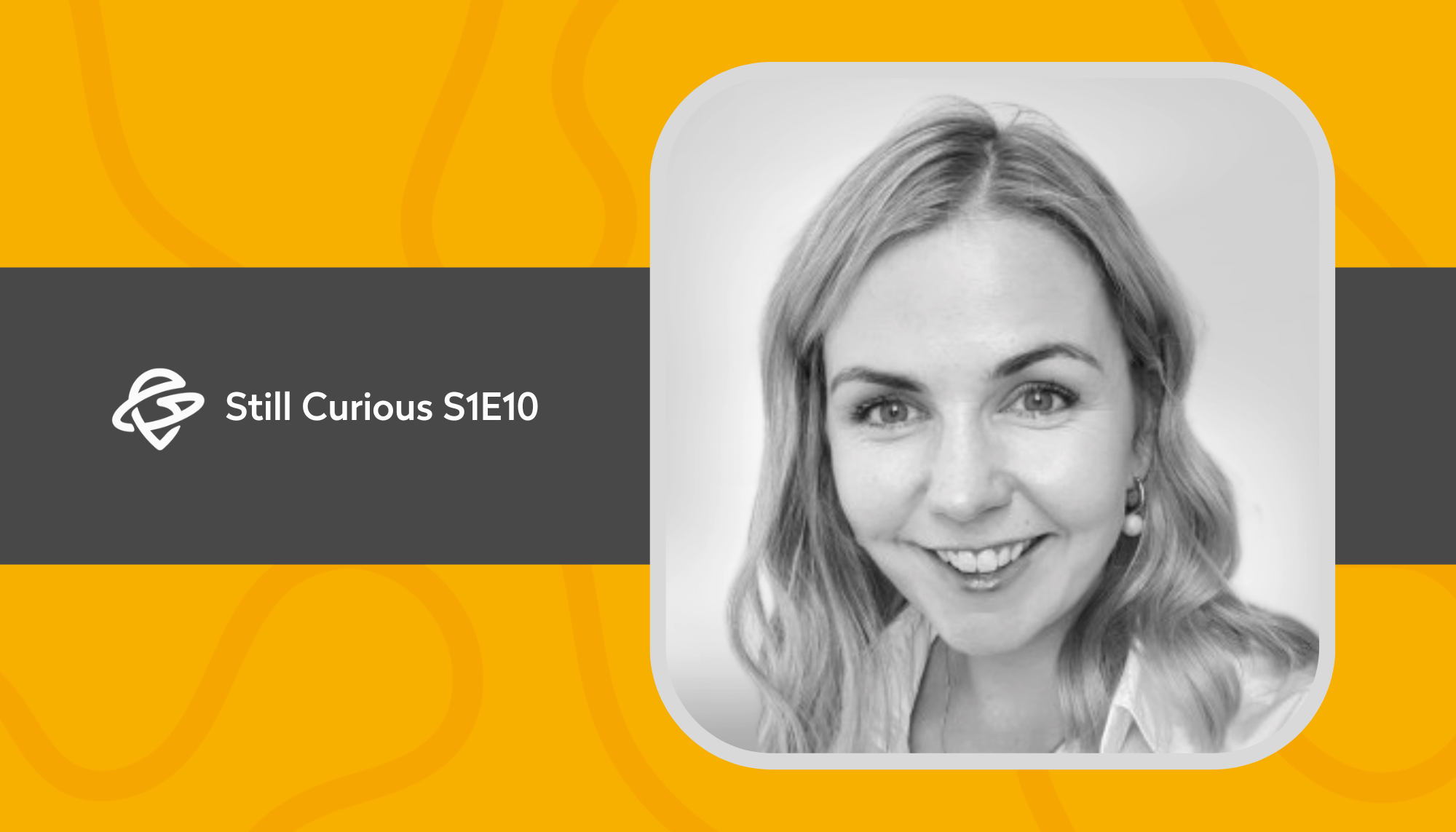
Kat Daley is the Program Manager for the Bachelor of Youth Work and Youth Studies at RMIT University in Melbourne, Australia. Her work examines issues of poverty, child abuse, homelessness, self-injury and mental health and she is author of the book, Youth and Substance Abuse (2017). Prior to academia Kat worked in the youth alcohol and other drug sector, initially in outreach and later in research. She has developed resources for the Youth AOD Toolbox and the Youth Drugs and Alcohol Advisory service (YoDAA) and co-led Victoria's first Statewide Youth Needs Census. Her current work is focused on how young people and women are impacted by policy changes in the corrections system.
Connect with Kat
Interactive Transcript
Note: This is a machine-generated transcript and may contain errors.

